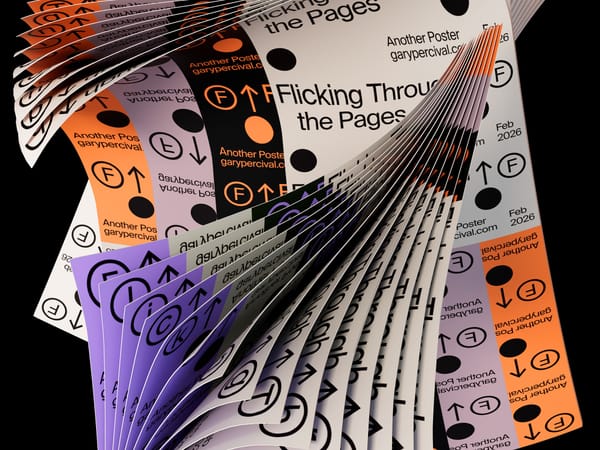New Year, New Lifestyle: How to Transform Your Habits for Better Outcomes
Progress requires self-compassion, not self-blame when you stumble.


With the dawn of another new year, many of us feel inspired to turn over that crisp, blank slate in our lives.
The end of one cycle and the start of the next spark newfound motivation to finally tackle old struggles, achieve neglected goals, and transform longtime habits and daily rituals that may have previously held us back.
That New Year’s vision of our best selves often shines brightly on January 1st. But lasting change is hard. By mid-February, so many ambitious resolutions already lie in tatters, abandoned as we backslide into the comfort of engrained routines—whether that involves skipping workouts, overindulging vices, numbing out on screens late into the night, or any number of patterns we tell ourselves we need to cut out.
But what if this time was different? What if you didn’t have to white-knuckle your way through attempted habit makeovers only to watch your willpower dissolve? By applying intention and thoughtful strategy to lifestyle shifts rather than clawing for motivation in fits of desperation, we can make incremental progress.
Compounded over time, those small gains transform into whole new, better ways of living. This year, give yourself the gift of durable change by first understanding what holds you back from achieving goals. Then start implementing science-backed behaviour change techniques tailored specifically to your stumbling blocks and aspirations.
Progress requires self-compassion, not self-blame when you stumble.
With small, daily 1% gains guided by wisdom and systems, not just inspiration, this year sets you up for lasting improvement rather than short-lived bursts before burnout. Let’s look at how to transform your habits in 2024 and beyond.
Assessing Current Behaviours
It's easy to get caught up in client work and reactive tasks, letting your own creative practice fall by the wayside. However, having a consistent creative ritual is essential for meeting your bigger goals and finding career fulfilment.
Start by auditing how you currently spend time and identifying strengths versus problem areas holding you back. Ask yourself:
- What does your average workday look like? Where are the pockets of wasted time, like social media scrolling?
- How often do you carve out time for personal creative projects versus client work? Is your own creative exploration an afterthought?
- What rituals or habits boost your creativity versus sabotage it? For example, does checking email first thing derail your focus?
- How could you better protect time for activities like sketching, learning a new skill, or experimenting with a passion project?
Take an honest look at your strengths, pain points, and where you'd like to improve. The key is getting specific about where your time goes and taking incremental steps to build better habits over time. Ritualising practices like morning pages, keeping an idea notebook, or blocking off creator time can work wonders.
When it comes to reaching your full potential, self-assessment and consistent creative practice are crucial. Take stock of your routines and start shaping your days in service of your higher aims. You've got this!
Eliminating Willpower Depletion
The latest science shows our habits function in a loop—a cue sparks a routine, which leads to a reward that reinforces the loop. When a habit feels intrinsically motivated and rewarding, we unconsciously go through the motions without much conscious effort. This means relying solely on willpower to push through positive changes can be challenging to sustain.
While willpower may not necessarily always diminish throughout the day as once thought, it also has its limits. The key is designing your environment so that good habits become the automatic path forward. Strategically place useful tools, cues, and accountability measures to spark healthy unconscious routines.
Make positive choices the easiest, most frictionless option by building motivation into the behaviours themselves.
Conserve some wilful effort for when it counts by making beneficial habits the simpler route over time.
Triggers and Accountability Hacks
Transforming habits requires putting external triggers and accountability measures in place to spark and reinforce positive routines. Get creative about building these habit stackers into your workflow for support. Schedule mandatory creative exploration or learning time on your calendar like you would an important meeting. Set phone alarms prompting you to take wellness breaks or tackle high-focus tasks when you have the most energy.
Automate small financial transfers into a savings account as soon as invoices are paid. Identify a peer group to celebrate small wins and troubleshoot challenges on your habit change journey. Surround yourself with visible reminders of your intentions. Design the cues to make good habits effortless through timers, trackers, grouped to-dos, and more.
Incremental Progress Through Systems
When trying to transform habits, it’s easy to get discouraged if you expect overnight results. Lasting change occurs through small, incremental progress. Focus on consistent systems and routines that slowly build 1% gains day-by-day, rather than sweeping makeovers. Establish the framework, then let compounding carry you.
For instance, writing, learning, or creating for just 30 minutes daily leads to incredible results over months and years. Win the day by repeating tiny, achievable actions, understanding that these modest rituals stacked consistently are what drive transformation. Celebrate mini milestones while the compounded effects of steady systems propel your gradual evolution to new heights.
Environment Design for Success
Transforming habits requires being strategic about controlling cues. Craft your physical and digital environments intentionally to remove distractions, enabling your desired actions. For example, keep healthy snacks visible and ready to eat while tucking indulgent treats out of sight to effortlessly make nutritious choices.
Set up an inspiring, ergonomic workspace to design, write, or create that matches when you have peak mental energy. Digitally mute notifications during intentional work blocks on your calendar to minimise interruptions so you can finish priority tasks. Then ensure leisure cues get built-in post-work as well, like scheduling evening fun with friends. Design your universe to cue up productivity, restoration, and rewarding experiences automatically through smart environment crafting.
Progress over Perfection
When working to transform habits, motivate yourself through self-compassion instead of self-criticism. Progress requires a growth mindset, not perfection. Allow yourself to stumble at times on your journey towards positive shifts without judgement. Perhaps your new exercise routine gets disrupted, or you overspend despite budgeting. Expect ups and downs, then get back on track.
Focus on incremental gains by celebrating small wins, not berating isolated backslides. Uphold standards grounded in your values while demonstrating patience, understanding, and kindness towards yourself as new habits embed. Sustainable change unfolds over time, fuelled by progress, not perfection.
Rebound from Relapse
At times, amid habit change attempts, the chaos of life grabs hold, leading even the most dedicated to relapse into prior ways. You get overwhelmed, stop meal-prepping, and grab takeout instead. Or an important deadline has you working nonstop, throwing a healthy work-life balance off track.
When the inevitable backslide occurs, have compassion for yourself along with backup systems to minimise the detour. Perhaps keep healthy frozen meals on hand for emergencies when you can’t shop and cook them fresh. Schedule mandatory wellness activities weeks out on your work calendar so that when crises hit, self-care still gets booked in.
Establish one “untouchable” routine like a daily walk or drawing session not up for negotiation. Plan ahead with if-then approaches so that when busyness strikes, you already have systems to stay on track through the relapse and rebound quickly.
Conscious Choices, Unconscious Competence
When establishing renewed habits, conscious focus and willpower initially facilitate the behaviour change. But the end goal is for positive patterns to become automated, unconscious processes. With enough repetition over time, desired actions transform into natural, intrinsic routines requiring minimal thinking to maintain. What began as deliberate choices become effortless instincts.
Mindlessness liberates your mental resources for higher creativity and cognition since healthy habits now run on autopilot. For instance, prioritising proper sleep, good nutrition, and movement no longer demands much consideration once unconscious competence sets in. The incentives are intrinsically built-in. While conscious effort establishes and reinforces behaviours early on, ultimately automated unconscious habits free your mind for higher priorities.
Conclusion
As we’ve explored, lasting positive changes in lifestyle habits rely on both intention and effective systems. The new year offers a natural reflection point to consciously set goals for self-improvement. Whether becoming healthier, more productive, financially secure, or creatively rejuvenated, now is the perfect time to step back and thoughtfully design the routines and environment to match your aspirations.
Understand that small, incremental gains made consistently over time truly compound into whole new ways of living. The goal is for consciously engineered habits to become automated over time, liberating mental resources for higher aims. Through a growth mindset of progress over perfection, along with self-compassion during inevitable ups and downs, your habits can gradually transform for the better, leading to amazing new horizons this year.



